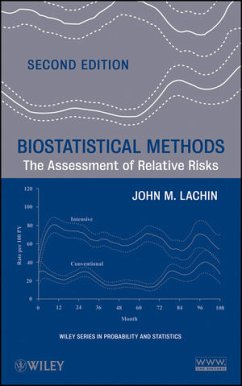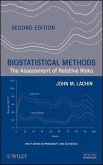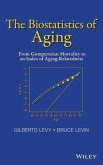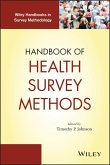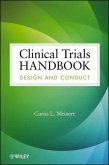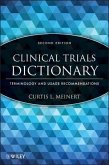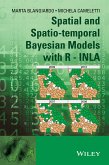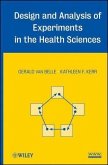Praise for the First Edition ". . . an excellent textbook . . . an indispensable reference for biostatisticians and epidemiologists." --International Statistical Institute A new edition of the definitive guide to classical and modern methods of biostatistics Biostatistics consists of various quantitative techniques that are essential to the description and evaluation of relationships among biologic and medical phenomena. Biostatistical Methods: The Assessment of Relative Risks, Second Edition develops basic concepts and derives an expanded array of biostatistical methods through the application of both classical statistical tools and more modern likelihood-based theories. With its fluid and balanced presentation, the book guides readers through the important statistical methods for the assessment of absolute and relative risks in epidemiologic studies and clinical trials with categorical, count, and event-time data. Presenting a broad scope of coverage and the latest research on the topic, the author begins with categorical data analysis methods for cross-sectional, prospective, and retrospective studies of binary, polychotomous, and ordinal data. Subsequent chapters present modern model-based approaches that include unconditional and conditional logistic regression; Poisson and negative binomial models for count data; and the analysis of event-time data including the Cox proportional hazards model and its generalizations. The book now includes an introduction to mixed models with fixed and random effects as well as expanded methods for evaluation of sample size and power. Additional new topics featured in this Second Edition include: * Establishing equivalence and non-inferiority * Methods for the analysis of polychotomous and ordinal data, including matched data and the Kappa agreement index * Multinomial logistic for polychotomous data and proportional odds models for ordinal data * Negative binomial models for count data as an alternative to the Poisson model * GEE models for the analysis of longitudinal repeated measures and multivariate observations Throughout the book, SAS is utilized to illustrate applications to numerous real-world examples and case studies. A related website features all the data used in examples and problem sets along with the author's SAS routines. Biostatistical Methods, Second Edition is an excellent book for biostatistics courses at the graduate level. It is also an invaluable reference for biostatisticians, applied statisticians, and epidemiologists.
Dieser Download kann aus rechtlichen Gründen nur mit Rechnungsadresse in A, B, BG, CY, CZ, D, DK, EW, E, FIN, F, GR, HR, H, IRL, I, LT, L, LR, M, NL, PL, P, R, S, SLO, SK ausgeliefert werden.
"Biostatistical methods, second edition is an excellent book for biostatistics courses at the graduate level. It is also an invaluable reference for biostatisticians, applied statisticians, and epidemiologists." (Mathematical Reviews, 2011)
"The author of this book has made a tremendous effort in covering a gamut of tests, methods, and ideas for biostatistical problem solving . . . In conclusion, the book is recommended to all in biostatistics as a technical reference." (Journal of Biopharmaceutical Statistics, 1 September 2012)
"...Biostatistics is set apart from other statistics specialties by its focus on the assessment of risks and relative risks through clinical research," states Lachin (George Washington U.) in the preface to the first edition (2001). He developed this graduate text to support a course he launched as a joint initiative of the university's department of statistics, its Biostatistics Center, and the School of Public Health and Health Services. Coverage includes discussion of biostatistics and biomedical science, relative risk estimates and tests for independent groups, sample size, stratified adjusted analysis, case-control and matched studies, applications of maximum likelihood and efficient scores, among other topics." (Book News Inc., February 2011)
"The author of this book has made a tremendous effort in covering a gamut of tests, methods, and ideas for biostatistical problem solving . . . In conclusion, the book is recommended to all in biostatistics as a technical reference." (Journal of Biopharmaceutical Statistics, 1 September 2012)
"...Biostatistics is set apart from other statistics specialties by its focus on the assessment of risks and relative risks through clinical research," states Lachin (George Washington U.) in the preface to the first edition (2001). He developed this graduate text to support a course he launched as a joint initiative of the university's department of statistics, its Biostatistics Center, and the School of Public Health and Health Services. Coverage includes discussion of biostatistics and biomedical science, relative risk estimates and tests for independent groups, sample size, stratified adjusted analysis, case-control and matched studies, applications of maximum likelihood and efficient scores, among other topics." (Book News Inc., February 2011)

